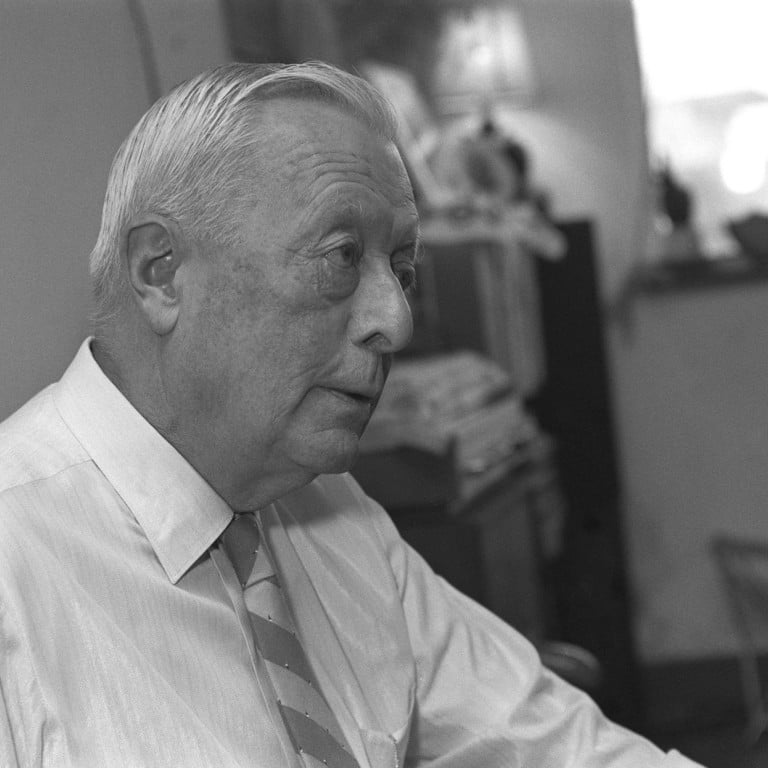
Then & now: pride and prejudice
The struggles of a colonial-era civil servant help highlight how far Hong Kong has come in terms of the treatment of LGBT fellow citizens, writes Jason Wordie
In a landmark decision, Britain recently legalised equal marriage. While the same recognition has yet to reach Hong Kong, movement towards full legal protection for the city’s LGBT fellow citizens is well underway. In due course, this progression will seem as fundamentally ordinary as interracial marriage, not so long ago viewed with widespread disdain.
Vocal, politically influential campaigning by Christian bigots merely delays (but cannot stop) social progress, any more than their theologically validated justifications for the suppression of women, indigenous colonised populations, the scientifically minded and anyone else who constituted a threat to their economic and political power, ultimately prevailed over decent ethical standards in civilised, tolerant societies with plural, secular values and broad commitments to social justice.
The life of Austin Coates, whose delightful memoir Myself a Mandarin remains the city’s only English-language popular classic, epitomised the conundrum faced by an earlier generation of Hong Kong homosexuals in forging a joint life in the shadows of social oppression and legal proscription.
Genuinely cosmopolitan (his father, Eric Coates, was a popular light-music composer) and a round peg in a square hole, Coates joined the colonial service in 1949.
Hong Kong’s European society was several sizes too small for him, in every respect; while biggerminded colleagues enjoyed and appreciated his talents, Coates remained more than a bit “too much” for conventional (and often jealous) colonial stereotypes.
As W.H. Auden wrote, “those to whom evil is done, do evil in return”; perhaps inevitably, the most virulent bigots are those whose personal insecurities cause them to lash out at others more confident about themselves and their place in the world. Coates was eventually hounded into a nervous breakdown – alluded to towards the end of Myself a Mandarin – by his boss, New Territories district commissioner K.M.A Barnett.
Barnett’s homophobic vendettas also helped prevent the bestowing of a post-war gallantry award on a fellow Hong Kong Volunteer Defence Corps officer, who spent the war passing information, at considerable personal risk, in and out of Argyle Street prisoner-of-war camp. Sleeping with one of the Formosan guards helped enable this activity but, “on morals grounds”, the military OBE recommended was not awarded.
To compound irony upon insult, the British official in Tokyo responsible was John Profumo, whose squalid peccadillos with young prostitutes, and subsequent lies to parliament, would help bring down the British government in 1964.
Partly to escape from Barnett, Coates transferred from Hong Kong to Sarawak, Borneo, and then spent several years in Malaya and Singapore. There he met Tan Kok Seng, who remained a large part of Coates’ life till the latter’s death, in 1997. They returned to live in Hong Kong in 1967, partly because, due to immigration restrictions elsewhere, nowhere else permitted them a joint home.
With Coates’ encouragement, Tan wrote about his earlier life; Son of Singapore and Man of Malaysia offer a rare memoir voice, in English, of 1950s working-class Asian life. Yet despite his talents, Tan was permanently consigned, in the public eye, to the role of Coates’ “driver” and “secretary” – a studied insult to a highly intelligent man whose presence and support unquestionably enabled Coates’ own best work.
Being forced by societal bigotry to publicly acknowledge someone loved and valued through a smokescreen of demeaning euphemisms ultimately damages and degrades everyone who participates in the dishonesty. Future generations – thankfully – need not be thus lowered by prejudiced attitudes – at least not these particular ones.

